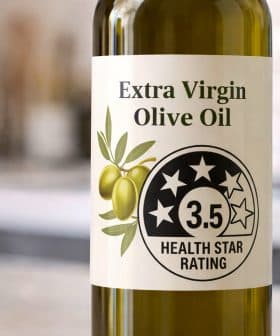Reduced Risk of Cardiovascular Events with Med Diet and Extra Virgin Olive Oil or Nuts
A recently revised study suggested that a nutritious diet with healthy fat is more beneficial to the heart than a low-fat diet.
Spanish researchers found that people who followed a Mediterranean diet supplemented with extra virgin olive oil or nuts had fewer heart attacks and strokes compared to those following a low-fat diet, supporting the benefits of the Mediterranean diet for reducing cardiovascular risk. The study involved 7,447 participants at high risk for cardiovascular events and showed that those on the Mediterranean diet had lower rates of major cardiovascular events, highlighting the importance of incorporating healthy fats like olive oil and nuts into daily diets for heart health.
Spanish researchers found people suffered fewer heart attacks and strokes when following a Mediterranean diet (MedDiet), supplemented with extra virgin olive oil or nuts, compared to those following a low-fat diet. The results build on observational studies that have shown an inverse relationship between adherence to the MedDiet and cardiovascular risk.
Those assigned to an energy-unrestricted Mediterranean diet, supplemented with extra-virgin olive oil or nuts, had a lower rate of major cardiovascular events than those assigned to a reduced-fat diet
Lead author Ramón Estruch and colleagues at the Instituto de Salud Carlos III in Madrid studied 7,447 participants who ranged in age from 55 to 80 and were at a heightened risk of cardiovascular events.
They randomized the individuals to follow one of three diets: a MedDiet supplemented with extra virgin olive oil, a MedDiet supplemented with nuts and a control diet involving advice to cut back on fat intake. All three groups received dietary counseling and were evaluated for dietary adherence. The duration of the experiment was 4.8 years.
A heart attack, stroke or death from cardiovascular disease occurred in 288 participants: 96 in the MedDiet with extra virgin olive oil group, 83 in the MedDiet with nuts group and 109 in the control group.
This data translated into incidence rates of 8.1, 8.0, and 11.2 per 1,000 person-years, respectively. Rates of cardiovascular events were lower in individuals with better adherence to the MedDiet, the researchers noted.
“These results support previously reported benefits of the Mediterranean diet for cardiovascular risk reduction from a randomized trial. Our findings are also consistent with those of previous observational studies,” the authors said.
“In conclusion, in this primary prevention study involving persons at high risk for cardiovascular events, those assigned to an energy-unrestricted Mediterranean diet, supplemented with extra-virgin olive oil or nuts, had a lower rate of major cardiovascular events than those assigned to a reduced-fat diet. Our findings support a beneficial effect of the Mediterranean diet for the primary prevention of cardiovascular disease.”
Extra virgin olive oil and nuts are excellent sources of healthy fat. In an interview with Olive Oil Times, Haley Hughes, registered dietitian and certified diabetes educator with RDRx Nutrition explained the importance of this kind of fat and the nutritional factors underlying the study’s results.
“We need to increase polyunsaturated fats including olive oil, nuts, avocado and fish in our diet because they provide so many amazing health benefits. Multiple studies show how these fats coming from nutrient-dense sources support the heart, reduce blood pressure, improve brain health, encourage cell growth and promote satiety. These fats also provide antioxidants and vitamin E. Your body needs such fat to absorb and utilize certain essential vitamins, so it should be consumed daily in suggested amounts.”
The study was published in The New England Journal of Medicine.









